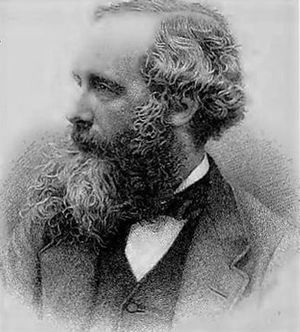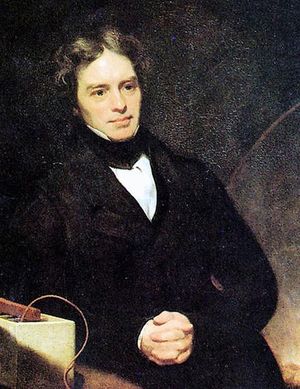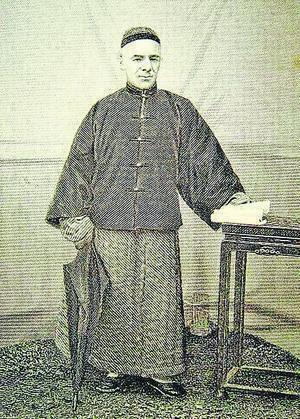My father went to be with the Lord in 1995. He was an example of Christian love and service both to the church and his family. A few years previously he had informed me, his only child, where certain legal documents were kept.
When he could see the end approaching, he called us to his bedside and told us of the detailed provisions that he had made for his family, as listed in his Last Will and Testament. It had been drawn up with loving concern for his family.
When we were seeing to these matters, I was struck by the realisation that our Lord Jesus Christ had also given full attention to his final Will and Testament. He bequeathed immense treasures to the church for its eternal blessing and comfort. God’s love and infinite generosity far exceeds anything displayed by man.
In this world the value of bequests are eroded by inflation; and tax changes can necessitate a new will being drawn up. New codicils need to be added for various reasons. But God’s foreknowledge and wisdom ensured that his Will on our behalf was drawn up perfectly from the very beginning: nothing need ever be added or taken away. No moth or rust will diminish its value. It is reserved securely in the vaults of heaven.
Symbols
God has disclosed his Will and Testament in two stages. The first stage enables us to anticipate the substance of his bequest. This disclosure uses earthly concepts as symbols of heavenly truths. God gave Abraham the promise of Canaan (Genesis 17:8). Canaan was cited by Moses as Israel’s promised inheritance (Exodus 32:13). It was a type of heaven, pointing forward to that eternal kingdom which belongs to God’s people.
Moses was instructed by the Lord to ensure that the children were not deprived of their earthly inheritance (Deuteronomy 21:15-17). The Levites were apportioned tithes instead of land (Numbers 18:24). Both these provisions took care of the material needs of their beneficiaries; but both also symbolised in earthly type an eternal inheritance yet to come.
For the beneficiary to be overly concerned about the material side of bequests hints at avarice, and the incarnate Jesus would not be side-tracked into judging such matters (Luke 12:13-14). Christ would rather his people focus on eternal issues.
Even in the Old Testament the prophet Isaiah (Isaiah 65:9) directed attention away from the inheritance of the physical mountains of Judah to that of the new heavens and new earth, which he would create, and to the new Jerusalem (Isaiah 65:17-18).
All this adumbrates the second stage — the new covenant ministry of Christ.

New covenant
Our Lord foretold the occasion when believers would receive their final inheritance. The Son of Man will sit on his glorious throne of judgement and will dispense eternal life to his children (Matthew 19:28-29). This fact he promised in response to a rather impertinent question from Peter, ‘What then will be our reward for our (costly) discipleship?’ Christ’s reply was gracious; it stands for the comfort of the church in all times.
The Son of God has been preparing our inheritance from the foundation of the world (Matthew 25:34). Just before his crucifixion he told his disciples, ‘I am going to prepare a place for you’ (John 14:2). What a wonderful place that must be, prepared with so much forethought! And how it must exceed the glory of Creation, which took just six days to prepare!
Christ planned ahead. From our middle age we might think of wisely arranging our affairs for the benefit of our successors. We recognise that our children will need help while we are still alive. When they start their working lives, there may be debts from a university education to pay off, a mortgage to arrange, a house to furnish, a car to buy, and so on. We can help them then; and by our Will we can maybe make some later provision for them or our grandchildren.
If we have no immediate family, perhaps some other young relations, or some charitable causes, could benefit from our immediate help, and we would have the blessing of seeing the fruit of that gift. This would mean leaving less for the Chancellor of the Exchequer!

Probate
There are two other questions to be asked — first, ‘How do we know that the inheritance Christ has promised us is really valid?’ The validity of our own wills, as well as the fact of our death, will one day have to be legally proved. This process is called obtaining probate.
Probate for Christ’s covenant is described in Hebrews 9:11-28, especially verse 16: ‘For where there is a testament, there must also of necessity be the death of the testator’. Likewise, God’s acceptance of Christ’s Will was declared by his being raised from the dead (Romans 4:25).
Probate is also concerned with the claims of Inheritance Tax. But God’s claims against us have all been fully met by the death of Christ — we were bought with a price (1 Corinthians 6:20). There is nothing more to pay, no purgatory looming ahead for those who are beneficiaries of the new covenant in this life. Jesus cancelled the written code, with its regulations against us. He took it away, nailing it to his cross (Colossians 2:13-1 4).
Rejoice and be glad! for the blood has been shed;
Redemption is finished, the price hath been paid.
Horatius Bonar
A valid Will needs two other provisions: executors and witnesses. It is no good having inherited a fortune, if it remains locked up in a bank vault with no one having the authority to get it released and handed over to you.
Christ is unique in being able to appoint himself as our executor: ‘My reward is with me, and I will give to everyone according to what he has done’ (Revelation 22:12).
He has instructed the Holy Spirit to mediate this inheritance to us: ‘He will bring glory to you by taking from what is mine and making it known to you’.
The angels too have a role in gathering the elect together to receive their final inheritance (Matthew 24:31). Thus provision has even been made for our journey to the solicitor’s office!
The witnesses are many, and especially the apostles. Peter was ‘a witness of Christ’s sufferings and one who also will share in the glory to be revealed’ (1 Peter 5:1). Paul ‘received [the gospel] by revelation from Jesus Christ’ (Galatians 1:12).
Being sure
The second question is, ‘How can we be sure we will actually receive what has been promised?’ It is all very well being named in a perfectly legal, drawn up Will, but if the testator has since lost all his wealth in a stock market crash or has later overspent, we might even inherit his debts!
We suffer from doubts — perhaps the testator didn’t really mean what he said when he told us he would favour us in his Will! A recent Reader’s Digest prize draw notice said, ‘You have been named as a potential double beneficiary’! We all know that this kind of ‘potential’ is as uncertain as a lottery. Is our Christian hope as vague as that?
We have the promises of Christ himself, who cannot lie, that he has gone to prepare a place for us in his Father’s house. He underlines his promise by saying, ‘If it were not so, I would have told you’. Christ has also backed up his promises with a wonderful advance payment from our inheritance.
He gives us a foretaste of what is to come. The apostle Paul says that, having believed, we received the mark of a seal. This seal is the promised Holy Spirit, who is a deposit guaranteeing our future inheritance (Ephesians 1:13-14).
We have the witness of the Holy Spirit in our hearts. He elevates our thoughts in adoration and praise of Christ, and brings us a joy that will reach its fullness when we finally stand in the presence of Christ.
Glorious contents
The apostle Peter unfolds the glorious contents of Christ’s Will. The inheritance is the new birth, the salvation of our souls and a living hope through the resurrection of Jesus Christ. It can never perish, spoil, or fade, since it is kept in heaven for us. Its early instalment includes a present inexpressible and glorious joy (1 Peter 1). What a prospect is ahead!
Whether we are setting out on the Christian path or whether death is fast approaching, we will one day stand amongst the redeemed in glory and praise God saying, ‘Surely I have a delightful inheritance!’ (Psalm 16:6).




















